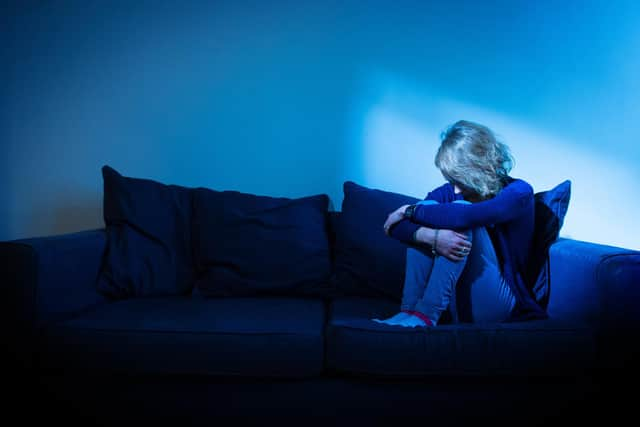University of Sunderland psychologist dissects the theory behind Blue Monday
and live on Freeview channel 276
The name and date was reportedly devised by psychologist Cliff Arnall in 2004 after he was charged by the holiday company Sky Travel with the task of creating a scientific formula for the January Blues.
So is it a real phenomenon or simply figment of our imagination?
Advertisement
Hide AdAdvertisement
Hide AdUniversity of Sunderland psychologist, Dr Rebecca Owens, has been shedding some light on what has come to be regarded as a depressingly dark day.
Dr Owens said: “Blue Monday is based on a mathematical formula which considers the cumulative impact of many different stressors on your emotions.
“Specifically, it suggests that the poor weather conditions, the amount of debt we are in, and the length of time between pay days all contribute to our reduced mood.”
The lecturer in Psychology feels one of the key factors is down to a lack of natural light as the demands of capitalism and modern world have overtaken our natural instinctive behaviours.


Advertisement
Hide AdAdvertisement
Hide AdShe said: “Our feelings and emotions are linked to our circadian rhythms – our internal body clocks.
“We have a roughly 24-hour cycle which is affected by external stimuli. For example, in the ancestral environment, we would have slept longer during the winter than the summer, to coincide with the change in natural light.
“Before we had electricity, we would have had shorter working days, we probably napped more, we probably had a more sustainable work-life balance.”
Dr Owens feels the situation has only been exacerbated by the Covid pandemic.


Advertisement
Hide AdAdvertisement
Hide AdShe added: “For many of us, working at home messes up our circadian rhythms more than usual. It makes it harder for us to differentiate days because we no longer have specific events on certain days, or our daily routine is now different.
“It makes the day all blend into one time-point. We don’t necessarily have things to look forward to anymore. Everything seems to get cancelled so our internal clocks and calendars are all out of whack.”
The introduction of a regimented working week may also have a role in generating anxiety and depression on Mondays.
Dr Owens said: “The weekend effect is where we generally feel happier on a Friday, but our mood has decreased dramatically by a Sunday evening – just in time for work.
Advertisement
Hide AdAdvertisement
Hide Ad“Before we had a culturally defined working week, the weekend effect did not exist. This effect has been linked to a lack of autonomy at work – essentially, if you do a job you dislike, in a place you dislike, if you feel forced to be at work, you’re more likely to feel negatively about it.”
The psychology expert also feels close proximity to Christmas, coupled with the ongoing impact of the pandemic, also wields an influence on people’s mood.
Dr Owens added: “We spend time with family and friends over the Christmas period – a time when the regular routine goes out the window and we can overindulge in our favourite food and tipples with loved ones.
“Fast forward to Blue Monday, and as the Omicron variant sky rockets, the usual feelings of being skint, feeling frumpy and bloated are now combined with more loneliness as more of us test positive and must isolate again.”
A message from the editor:
Support your Echo and become a subscriber today.
Enjoy unlimited access to all of our news and sport, see fewer ads, experience faster load times, test your brain with daily puzzles and get access to exclusive newsletters.
Comment Guidelines
National World encourages reader discussion on our stories. User feedback, insights and back-and-forth exchanges add a rich layer of context to reporting. Please review our Community Guidelines before commenting.
